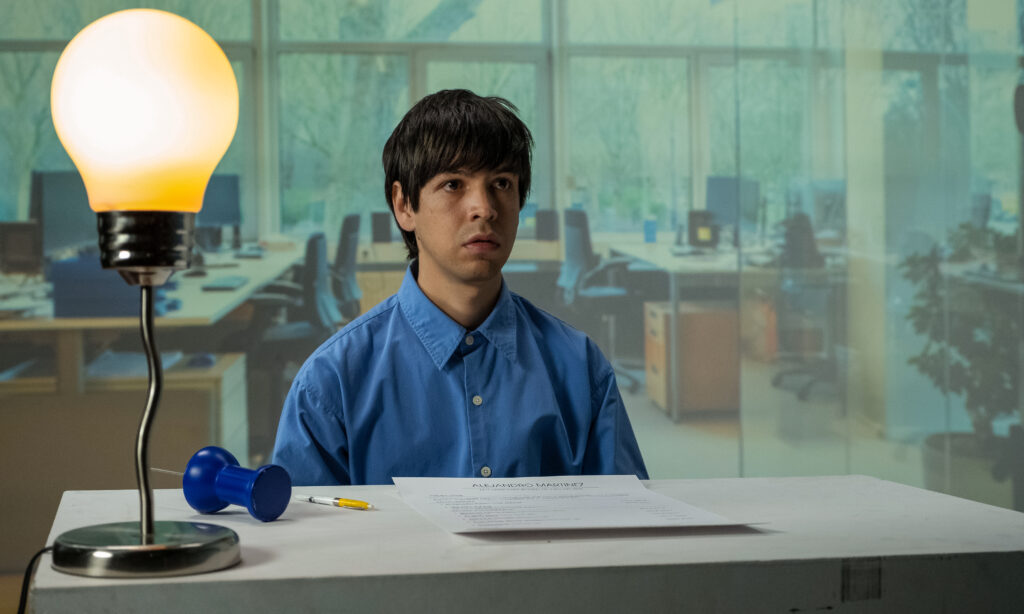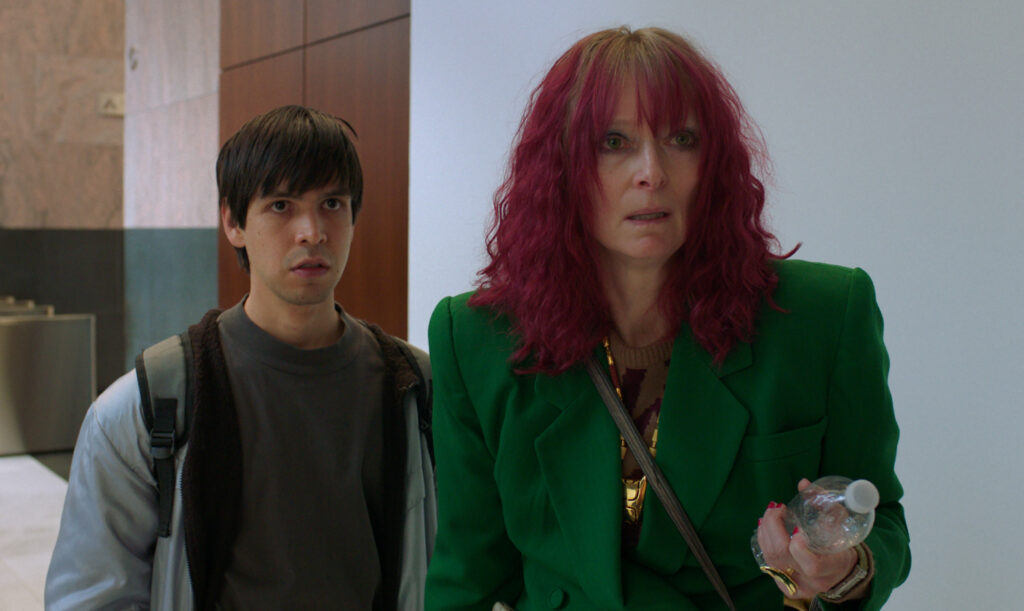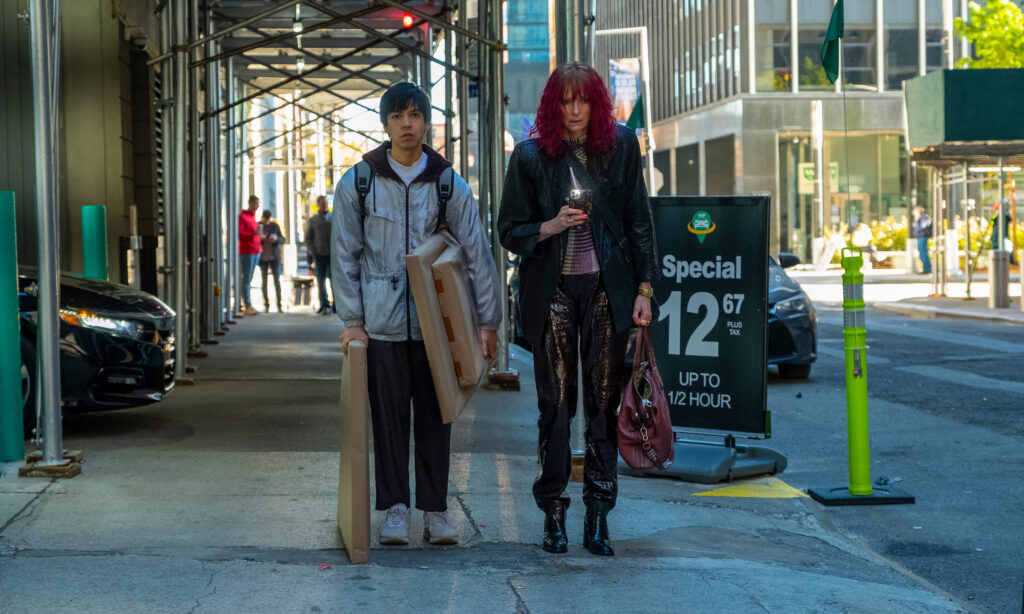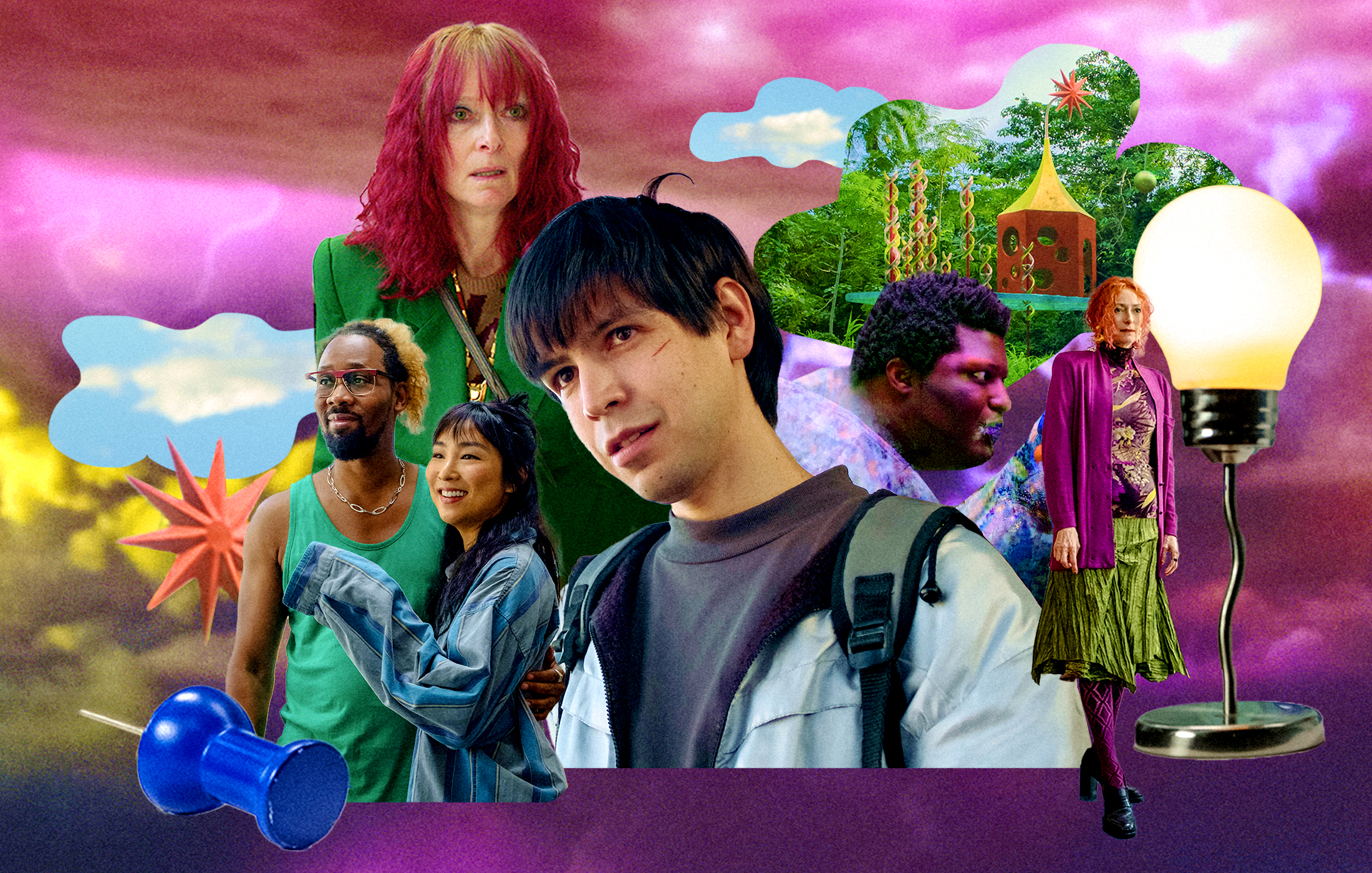There’s no doubt that “Problemista” comes from the brain of Julio Torres. His brand of absurdist humor is instantly recognizable, whether it’s his work on “Saturday Night Live,” “Los Espookys,” or his HBO Special, “My Favorite Shapes.” In each, he combines cutting social commentary with unique off-the-wall pairings and brings empathy for even the most difficult characters. Torres’ voice makes him particularly well suited to write, direct, and star in “Problemista,” made with studio A24, whose brand is synonymous with boundary-pushing work thanks to films such as “Everything Everywhere All at Once,” “Midsommar,” and “Past Lives.”
“Problemista” opens in theaters nationwide on March 22. It follows Torres as Alejandro, an aspiring toy maker who leaves his mother’s magical home in El Salvador for a less forgiving New York City, in the hopes of making it big. In talking with LATINA about the film, Torres explained, “It’s semi-autobiographical. [It’s] based on a moment in time when I was struggling to get a work visa and when I felt like I had one problem that led to another problem.”

(L-R) Julio Torres. Credit: Jon Pack.
When “Problemista” opens, Alejandro certainly has his fair share of problems. It’s not just that his living space is comically small (and getting smaller). Or that he’s trying to break into an elite and rarified industry (here, toymaking). No, what differentiates Alejandro’s troubles from someone like Andy in “The Devil Wears Prada” is that Alejandro needs to secure a work Visa.
“I’m very interested in humans trapped in bureaucracy,” explained Torres, and his film takes “trapped” both literally and metaphorically. “Problemista” visualizes what the US immigration system feels like. It shows the system as a cross between a whack-a-mole game and those famous Maurits Cornelis Escher paintings where stairs go everywhere and arrive nowhere. Alejandro is caught in this trap, which sometimes physically detains him, and other times holds his mind and his prospects prisoner.
Navigating bureaucracy feels like being in a senseless maze. I hope that people feel seen by [“Problemista”], and if they haven’t experienced [the US’s immigration system], that people get a sense of what it feels like.
“Navigating bureaucracy feels like being in a senseless maze. I hope that people feel seen by [“Problemista”], and if they haven’t experienced [the US’s immigration system], that people get a sense of what it feels like,” he shared. “Problemista” certainly excels at that, dramatizing just how absurd, nonsensical, and unfair the whole process is.

(L-R) Julio Torres, Tilda Swinton. Courtesy of A24.
For Alejandro, being caught in that system means throwing his lot in with Elizabeth, a privileged white lady, played by Tilda Swinton. In our conversation, Torres called her “an amalgamation of so many people that I’ve met along the way.” She’s certainly a terrible boss, prone to throwing her weight around, and demands unfailing devotion from Alejandro, while giving nothing in return except the promise to continue being unpredictable.
Still, Torres refuses to cast her as the villain. “I’m not a black or white kind of person. I like to think that I’m curious and empathetic,” he said. “If there is anything to take from her [character, it’s] her obstinance and her resilience, her refusal to be kept outside. You could say that is inevitably connected to privilege. But I felt like I needed to learn how to fight imposter syndrome, and [the feeling of] ‘oh, maybe I shouldn’t own it.’”

(L-R) Julio Torres and Tilda Swinton. Courtesy of A24.
Elizabeth offers an alternative – she always owns it. She’s the opposite of the good immigrant, the one who waits for her turn and doesn’t complain. Elizabeth doesn’t wait for anything. She demands and she teaches Alejandro to do the same, even if it’s unintentional on her part. In that way, “Problemista” wiggles out of the typical immigration story, nudging its protagonist to succeed not because he’s exceptional or breaks the law, but rather because he learns from an obnoxious white lady about how to take up space.
And that’s not the only way “Problemista” pushes the boundaries of the genre. Torres also gives us a view of the home country, El Salvador, that’s different from how Hollywood typically portrays it. He explained, “There are experiences that feel sepia, that feel like everyone has sweat in their necks. And there are ones that aren’t.” Sepia is the furthest from how he portrays his and his character’s native El Salvador, filling the frame with the deep greens of a shaded and welcoming jungle. Rather than a place of heated conflict, like the LATAM of so many cartel-driven immigrant stories, Torres’ El Salvador is a place of magic and comfort, thanks to Alejandro’s protective mother, Dolores.
There’s a difference seeing Latin America through [a native, rather than] a US lens. I depict life as I felt it, and Dolores’ house feels a lot like a house I lived in.
“There’s a difference seeing Latin America through [a native, rather than] a US lens,” Torres explained. “I depict life as I felt it, and Dolores’ house feels a lot like a house I lived in.” It’s there that Dolores fosters Alejandro’s love of toys and creativity. We see the cocoon she built for him, the safe space that allows him to grow up believing in himself and his abilities. And it’s not hard to imagine Torres growing up similarly protected, able to nurture his own quirky voice away from those who would shame or try to silence him.

(L-R) Catalina Saavedra. Courtesy of A24.
Not, of course, that the real world doesn’t beckon with all of its promises and pitfalls. Alejandro ventures out, internalizing the immigration system’s message of conformity and patience along the way. He even walks like a robot, the sort of wind-up toy he’s far too sophisticated to develop. Torres could hear a little “beep, beep, beep” when he embodied the “little explorer,” something that he said also influenced the film’s score.
Hollywood is very interested in this idea of the individual, the American dream, succeeding against all odds. And maybe there’s a reading of that in this movie. But I think I’m more interested in asking why, and [in questioning] the systems that make it so that only those who are the scrappiest float.
With these touches showing rather than telling the story, “Problemista” is re-writing the immigration narrative. Filtered through Torres’ brain, it’s no longer one of grit and determination but rather of frustration and bureaucracy. “Hollywood is very interested in this idea of the individual, the American dream, succeeding against all odds,” Torres said. “And maybe there’s a reading of that in this movie. But I think I’m more interested in asking why, and [in questioning] the systems that make it so that only those who are the scrappiest float.”
It’s a fair question, and one that Torres’s “Problemista” asks with humor and insight, showing its viewers the unfairness without getting stuck in shame or tragedy. Torres’ ability to name, dramatize, and find humor in the absurd sets him apart, and hopefully, he’ll be able to keep honing that skill as his promising career stretches in front of him.
Cristina Escobar is an activist and critic, working at the intersection of race, gender, and pop culture.
